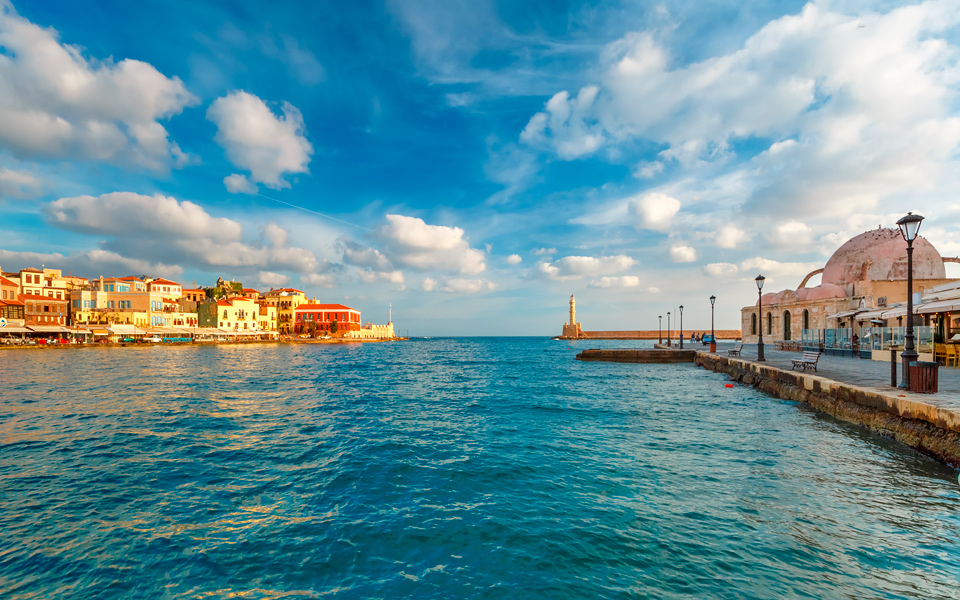Cretans tend to be very patriotic when it comes to their island, let alone their respective towns of origin. Still, you don’t need to hail from Hania to admit that it is the most picturesque city of Crete. Graced with one of the finest and best-preserved old towns in Greece, many even consider it one of the prettiest in the Mediterranean Sea, calling it “Venice of the East.”
Evidence of its charm is its long, millennium-spanning history of settlers and conquerors (Minoans, Dorians, Romans, Arabs, Byzantines, Venetians, Genoese, Egyptians and Ottoman Turks) who selected it for its strategic position by the sea and its fertile land, and left their indelible mark for all modern-day visitors and settlers to witness.
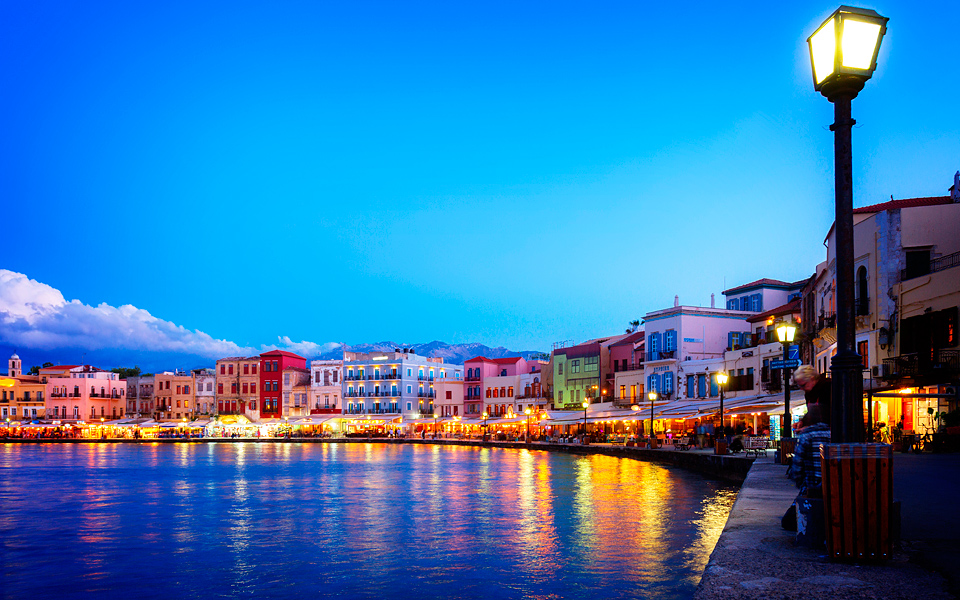
© Shutterstock
1. Venetian charm in every corner
Finding accommodation within the fortifications of the old town is a must, even if you end up not staying inside a Venetian palazzo; chances are you will be waking up right next to one. In the western quarter of Topanas, long arched pathways meander left and right past picturesque façades and inviting entryways, lending themselves to hours of leisurely walks. To paraphrase Heraclitus, you can never step into the same street twice.
For great views and romantic promenades, head towards the sea and stroll along the Venetian harbor. The best time of day is late in the afternoon. This way, you can catch the sun setting behind the lighthouse and avoid the tourists who are about to flock to the seafront restaurants.
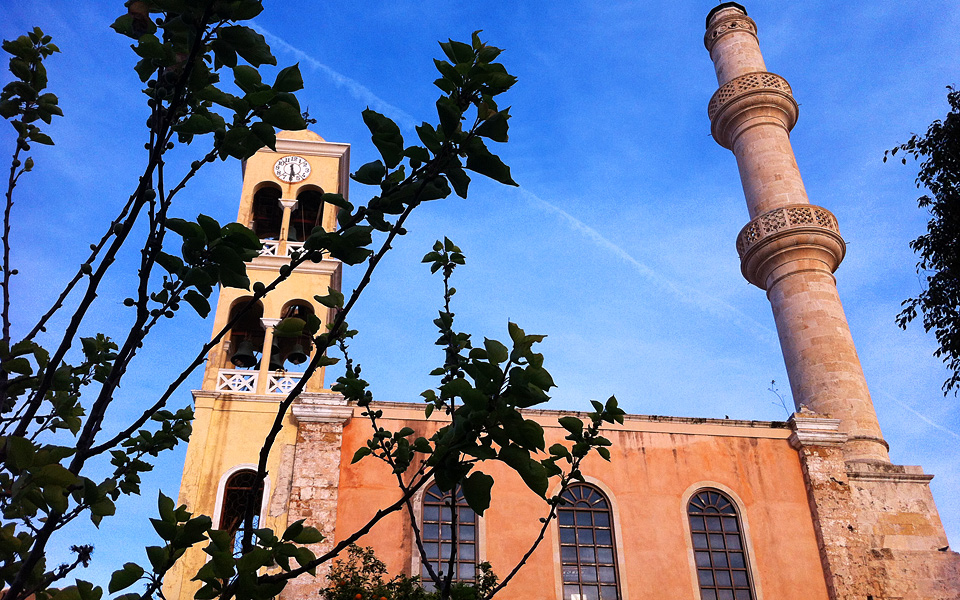
© Maria Coveou
2. The Turkish quarter
To get away from the bustling crowds in the summer, head east towards the quarter of Splantzia, which was inhabited from Minoan times and which became the center of the city during Ottoman rule. The area has been restored in recent years, its old houses have been renovated, fresh new businesses have been added and it has been transformed into the most indie quarter of the old town.
Start your day with a coffee under the old plane tree on Splantzia Square (aka 1821 Square), which may have witnessed brutal hangings during the Ottoman rule, but nowadays offers shade and an ideal spot for friendly encounters. Then, head off to discover the neighborhood’s back streets and get a sense of its local vibe. If you happen to be there on a Saturday, don’t miss the colorful farmers’ market on Minoos street.
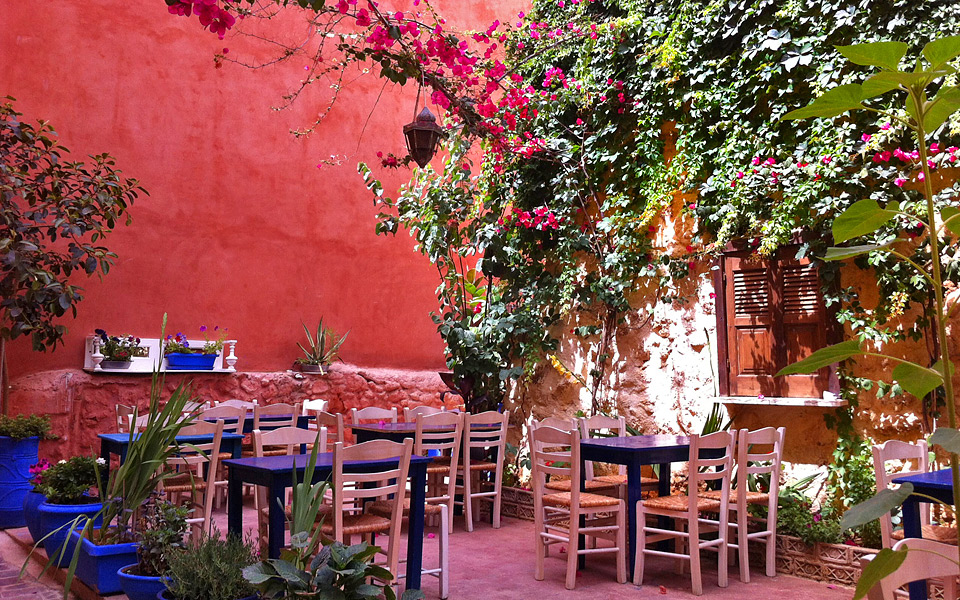
© Maria Coveou
3. An amalgam of flavors
Like the town itself, its gastronomy is a melting pot of civilizations and by no means obsessed with Greek tradition. Tamam restaurant just off the harbor, housed in what used to be a Turkish hamam, serves oriental dishes, like the unusual Iranian rice (Basmati with vegetables and dry fruits), but also delicious Cretan delicacies, like apaki (pork fillet smoked with local herbs and vinegar).
The Well of the Turk in the quarter of Splantzia comes with an actual well and one of the most picturesque yards. It serves Mediterranean and Turkish-Moroccan dishes and is always packed, so make a reservation. Try the Moroccan Bricks (filo pastry with aubergine, feta cheese and pine nuts), and the refreshing avocado and orange salad. For delicious fresh fish and traditional Greek dishes, like stuffed courgette flowers with yogurt, seek out the unpretentious Doloma, which lies half-hidden behind mulberry trees in a peaceful yard overlooking the back of the Venetian dockyards.
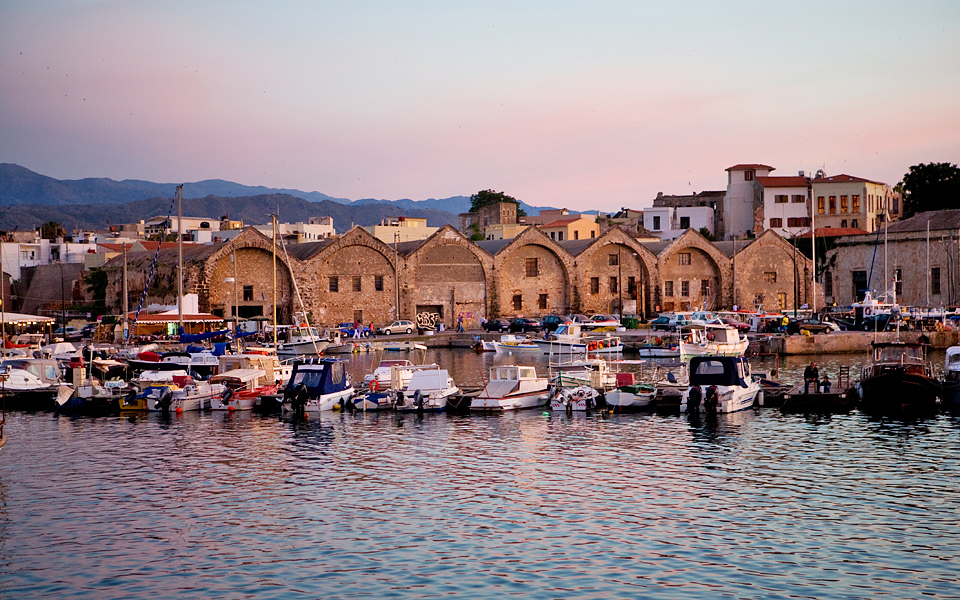
© Municipality of Hania
4. Historical landmarks
On the northern border of the old town, the Municipal Market is an exquisite 4,000 sq.m. cross-shaped structure, built in 1913 in late-Neoclassical style, housing 76 different shops. Stop here for local delicacies and souvenirs. On Splantzia square, look up to marvel at the unique Dominican Temple of St. Nicholas (constructed around 1320 during Venetian rule), which features both a Christian Orthodox bell tower and a Turkish minaret. The Cathedral of the Presentation of the Virgin Mary (aka Trimartiri) is an architectural gem built in 1860 in the style of a three-aisled Basilica and its yard is a great place for relaxing in the afternoons.
The 16th century Venetian dockyards (arsenali), where the ships were maintained during winter, are rare examples of such structures and worth a visit. Finally, the emblematic Egyptian lighthouse, a 16th Century Venetian structure originally, which was re-built by the Egyptians in the 19th Century, is unique in that it resembles a minaret and adds a unique charm to the harbor.
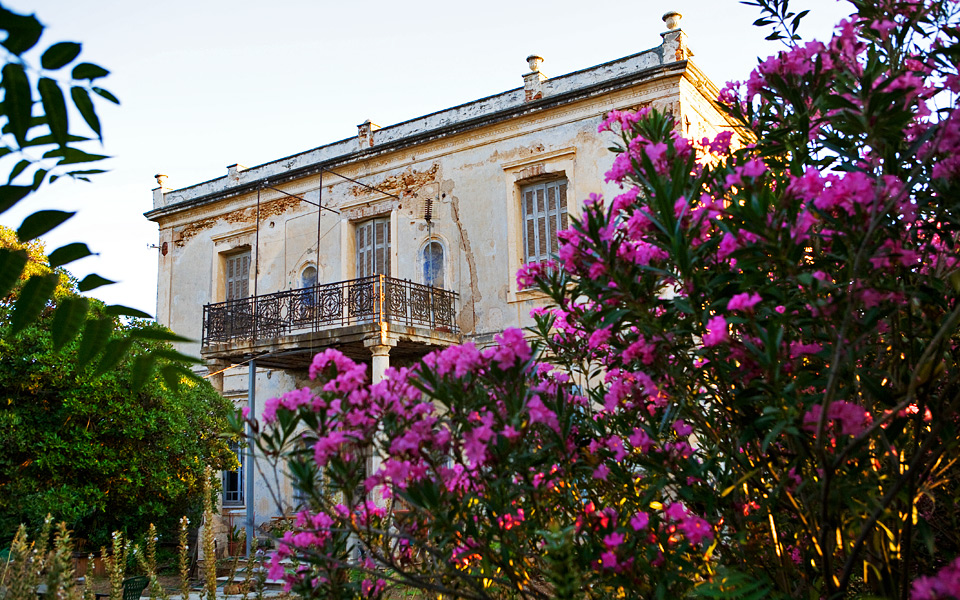
© Municipality of Hania
5. Neoclassical flair beyond the fortification walls
If you can’t get enough of architecture, head outside the eastern fortification wall and towards the district of Chalepa, which during the 19th century developed into an aristocratic suburban resort of European glamour housing rich merchants and prominent citizens of Hania. Eleftherios Venizelos, the eminent Greek leader of the national liberation movement and then prime minister, who hails from Hania, lived here. His house was built in 1880 and renovated in 1927 and can be visited today.
Royalty also resided here, like Prince George of Greece, whose neoclassical palace built in 1882 can still be admired from the outside. He’s also the one responsible for the quirky, Russian-style church of Saint Mary Magdalene, which he ordered built in 1901, during his time as high commissioner of Crete in honor of his sister Maria. The building was inaugurated in 1903. It is built inside a beautiful garden, ideal for repose after a long walk in the neighborhood.

